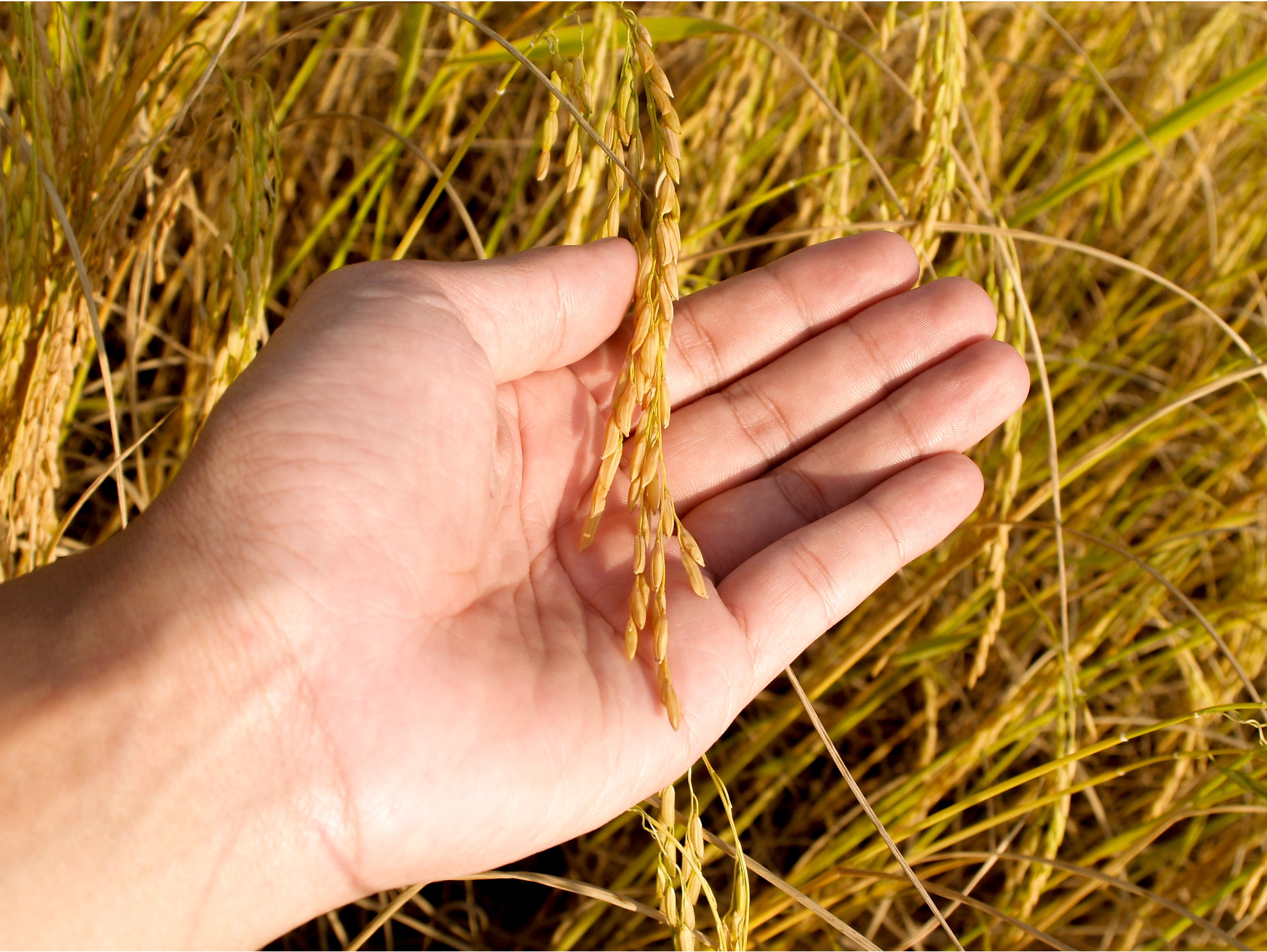
The International Rice Research Institute (Irri) spent two decades with PhilRice to develop Golden Rice. —Isagani Serrano/IRRI
A recent court decision halting the production of the genetically modified crops Golden Rice and Bt (Bacillus thuringiensis) eggplant may impact on the country’s food security and may cause “more harm than good,” according to the Department of Agriculture (DA) and government advisory body of scientists and academicians.
In a statement on Friday, the DA said the government was exploring legal options after the Court of Appeals (CA) on April 17 issued a cease-and-desist order on the commercial propagation of Golden Rice and Bt eggplant, and revoked the biosafety permits granted to the crops’ developers, the Philippine Rice Research Institute (PhilRice) and the University of the Philippines Los Baños, respectively.
READ: CA stops commercial growing of GMO crops
“The government’s legal team, led by the Office of the Solicitor General, is exploring legal remedies in relation to the subject CA order, which could have significant implications for the country’s food security,” it said.
“In this light, the DA will opt for prudence and refrain from commenting further on this issue,” it added.
Golden Rice is the first genetically modified rice variety for improved nutrition developed by PhilRice with the International Rice Research Institute. It contains additional levels of beta-carotene which the body converts into vitamin A.
On the other hand, Bt eggplant contains a natural protein from the soil bacterium Bacillus thuringiensis making it resistant to eggplant fruit-and-shoot borer.
Delaying innovations
In a position paper made public on Thursday, the National Academy of Science and Technology (NAST), which is under the Department of Science and Technology (DOST), said it was concerned that the court decision may “unnecessarily delay overdue innovations.”
“Consistent with its mandate to help guide Philippine society in understanding scientific and technological controversies, NAST reiterates its support for the use of modern biotechnology in plant breeding,” said the NAST’s agricultural sciences division.
READ: Wanted: More information on GMO
It feared that the CA ruling was tantamount to the “weaponization of the law to favor an extreme ideology about nature—that a pristine environment must be preserved, and modern biological technology is working against this goal.”
“If we did not interfere with nature through modern technology, we would not have attained the quality of life we now enjoy,” it said.
For the NAST, modern interventions on plant breeding resulted in “improved varieties” of crops and other medical technologies, such as vaccines and antibiotics, which provided relief to humans against health, social and environmental harm.
“Bt talong (eggplant) and Golden Rice are just the latest in the parade of modern varieties of crops,” it said.
The NAST’s position paper was signed by the agricultural sciences division chair, Eufemio Rasco Jr., and eight other members. National Scientist Emil Javier, who is a member of the biological sciences division, is also a signatory.
Created in December 1976 through a presidential decree, the NAST is mandated to advise the President on policies affecting the science and technology landscape of the country. It also holds yearly scientific conferences and publishes academic journals and books based on the studies of its own academy members and national scientists.
‘Precautionary principle’
The NAST also opposed the invocation by the CA of the “precautionary principle,” which states that human activities that may pose irreversible environmental damage “that is scientifically plausible but uncertain” should merit actions that could curb any threat.
“The precautionary principle says, ‘look before you leap,’ and puts the burden of proving the absence of harm to developers of technology,” it said. “While ‘looking’ is the job of science, the requirement to prove the absence of harm or absolute freedom from all risks, known and unknown, is beyond the capacity of the scientific method.”
It added: “No technology is risk-free, [and] the most advanced societies are those that are more willing to take risks.”
Still, the NAST maintained that both Golden Rice and Bt eggplant passed the country’s regulatory measures, which it noted was “not perfect,” but was “compliant with international standards,” to ensure the safety for human consumption and the environment of these genetically modified organisms (GMOs).
Promote farmer health
In its ruling, the CA granted the writ of kalikasan and the writ of continuing mandamus, which directed the concerned government agencies to submit their enhanced risk assessments and protocols in monitoring GMOs.
According to the NAST scientists, over 20 years worth of scientific evidence show that Bt eggplant “can substantially improve farmer income by reducing losses due to insect damage … and promote farmer health by reducing his reliance on harmful chemical pesticides.”
“Both of these are attained without harming the consumer or the environment,” they said.
Golden Rice, meanwhile, can “effectively reduce human suffering due to vitamin A deficiency, without any negative impact on the farmer and the environment,” they noted.